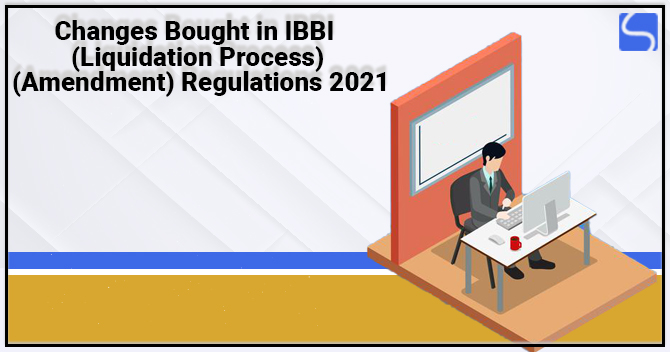FEMA Act in India: Everything You Need to Know

Shivam Narwal | Updated: Apr 13, 2023 | Category: Other Services
A key regulation called the Foreign Exchange Management Act (FEMA) was passed by the Indian government in 1999 to control foreign exchange transactions and capital inflows and outflows. The former FERA regulation (Foreign Exchange Regulation Act), 1973, was superseded, and its goal was to liberalise and simplify foreign exchange operations in India. In this blog, we will provide more about FEMA Act.
Table of Contents
What is FEMA?
The Foreign Exchange Management Act (FEMA) is a law that controls foreign exchange transactions, such as the inflow and outflow of foreign capital, the purchase and transfer of foreign assets, and the opening and maintenance of foreign exchange accounts in India. The import and export of goods and services, the dealings in foreign exchange and securities, and the repayment of foreign debt are all governed by FEMA. The regulatory body that monitors the application of FEMA in India is the Reserve Bank of India (RBI)[1].
Objectives of FEMA Act
The primary objectives of FEMA Act are as follows:
Key Provisions of FEMA Act
- Facilitating external trade and payments: One of the primary objectives of FEMA is to promote external trade and payments. It aims to create a conducive environment for foreign trade and investment in India by regulating the inflow and outflow of foreign capital.
- Promoting orderly development and maintenance of the foreign exchange market: FEMA seeks to promote the orderly development and maintenance of the foreign exchange market in India. By regulating the foreign exchange market, it aims to create a stable and predictable environment for foreign exchange transactions, which is essential for attracting foreign investment.
- Regulating capital account transactions: Another objective of FEMA is to regulate capital account transactions. It seeks to control the inflow and outflow of foreign capital in India, ensuring that it is consistent with the country’s economic objectives and does not disrupt the country’s macroeconomic stability.
- Ensuring proper utilization of foreign exchange resources in India: FEMA aims to ensure that foreign exchange resources in India are utilized efficiently and effectively. By regulating the inflow and outflow of foreign exchange, it seeks to ensure that the resources are put to productive use and contribute to the country’s economic development.
- Conserving foreign exchange reserves in India: FEMA seeks to conserve foreign exchange reserves in India. By regulating the foreign exchange market, it aims to ensure that the country’s foreign exchange reserves are not depleted and are available to meet the country’s foreign exchange obligations and emergencies.
- Stopping illegal activities like money laundering and financing terrorism: Last but not least, FEMA works to stop unlawful actions like money laundering and financing terrorists. It aims to prevent the exploitation of foreign exchange resources for illicit activities that could damage the nation’s economic and social fabric by regulating the foreign exchange market.
Following are the key provisions of FEMA Act:
- Capital Account Transactions: FEMA regulates all capital account transactions in India. These transactions include foreign direct investment, foreign portfolio investment, external commercial borrowing, and non-resident deposits.
- Current Account Transactions: FEMA also regulates all current account transactions in India. These transactions include trade in goods and services, remittances, and foreign currency accounts.
- Enforcement and Penalties: FEMA has strict provisions for enforcement and penalties for non-compliance. The penalties for violating FEMA can range from a monetary fine to imprisonment, depending on the severity of the offense.
- Authorized Persons: FEMA authorizes certain individuals and entities, such as banks and money changers, to deal in foreign exchange transactions. These authorized persons must comply with the regulations and guidelines specified under FEMA.
- Foreign Direct Investment: FEMA regulates all aspects of foreign direct investment in India, including the entry route, sectoral caps, and repatriation of capital and profits.
- Foreign Portfolio Investment: FEMA regulates foreign portfolio investment in India, including investments made by foreign institutional investors, foreign venture capital investors, and qualified foreign investors.
Implications of FEMA
- For Businesses: Businesses that deal with foreign exchange transactions or foreign capital inflows and outflows must comply with FEMA regulations. Failure to comply with FEMA can result in hefty penalties and even imprisonment.
- For Individuals: Individuals who send or receive money from abroad must comply with FEMA regulations. Non-compliance can result in fines and even imprisonment.
- For Investors: Foreign investors who wish to invest in India must comply with FEMA regulations, including sectoral caps and repatriation guidelines. Failure to comply can result in penalties and even the cancellation of their investment.
- For the Economy: FEMA plays a crucial role in promoting external trade and payments, regulating capital account transactions, and conserving foreign exchange reserves. It helps maintain stability in the foreign exchange market and prevents illegal activities such as money laundering and terrorism financing.
Conclusion
An important piece of legislation that controls foreign exchange operations in India is the Foreign Exchange Management Act (FEMA). With its implementation, a stable and predictable environment for foreign exchange transactions has been created, fostering India’s international trade and investment. The law’s goals, which include controlling capital account transactions, protecting foreign exchange reserves, and stopping criminal activities like money laundering and terrorism financing, have had a significant impact on organisations, people, and the Indian economy. Compliance with FEMA requirements is essential for businesses that handle foreign exchange transactions or foreign capital inflows and outflows. Violations are punishable by severe fines and perhaps jail. The FEMA rules must also be followed by anybody who send or receive money from abroad to avoid penalties and jail time. Similarly, individuals who send or receive money from abroad must comply with FEMA regulations to avoid fines and imprisonment. Foreign investors who wish to invest in India must also comply with FEMA regulations, including sectoral caps and repatriation guidelines, failing which can lead to penalties and the cancellation of their investment.
On the other hand, the Indian economy has benefited significantly from the implementation of FEMA. The law has promoted external trade and payments, helped maintain stability in the foreign exchange market, and prevented illegal activities such as money laundering and terrorism financing. It has also ensured the efficient and effective utilization of foreign exchange resources in India while conserving foreign exchange reserves for emergencies and meeting the country’s foreign exchange obligations. In conclusion, FEMA is a well-conceived law that has served India well in its objectives of promoting external trade and payments, regulating capital account transactions, ensuring the proper utilization of foreign exchange resources, conserving foreign exchange reserves, and preventing illegal activities such as money laundering and terrorism financing. Its strict provisions for enforcement and penalties for non-compliance have ensured that businesses and individuals comply with the law’s regulations. Overall, FEMA has played a vital role in facilitating India’s integration into the global economy and ensuring its economic growth and stability.
Read our Article:A Complete Summary of NBFC Compliance under FEMA













